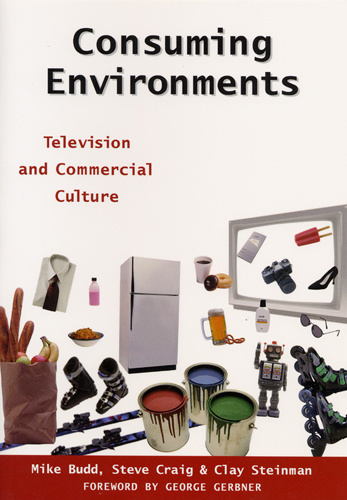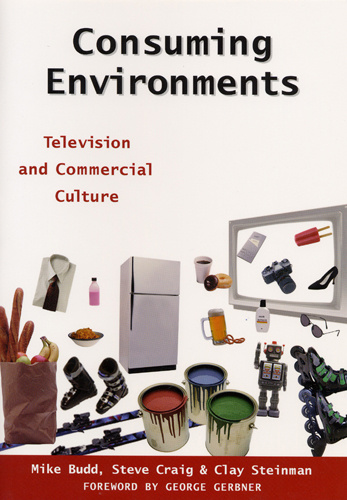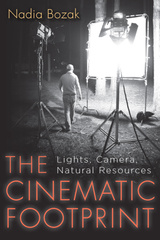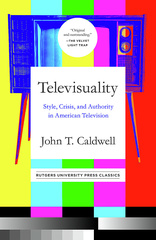Consuming Environments
Television and Commercial Culture
Rutgers University Press
Whether we love it, hate it, or use it just to pass the time, most adults in the United States are watching more television than ever, up to four hours a day by some estimates. Or devotion to commercial television gives it unprecedented power in our lives.
Advertisers and television executives want us to spend as much time as we can in front of our sets, for it is access to our brains that they buy and sell. Yet the most important effect of television may be one that no one intends--accelerated destruction of the natural environment.
Consuming Environments explores how, with its portrayals of a world of simulated abundance, television has nurtured a culture of consumerism and overconsumption. The average person in the U.S. consumes more than twice the grain and ten times the oil of a citizen in Brazil or Indonesia. And people in less industrialized countries suffer while their resources are commandeered to support comfortable lifestyles in richer nations. Using detailed examples illustrated with images from actual commercials, news broadcasts, and television shows, the authors demonstrate how ads and programs are put together in complex ways to manipulate viewers, and they offer specific ways to counteract the effects of TV and overconsumption's assault on the environment.
Advertisers and television executives want us to spend as much time as we can in front of our sets, for it is access to our brains that they buy and sell. Yet the most important effect of television may be one that no one intends--accelerated destruction of the natural environment.
Consuming Environments explores how, with its portrayals of a world of simulated abundance, television has nurtured a culture of consumerism and overconsumption. The average person in the U.S. consumes more than twice the grain and ten times the oil of a citizen in Brazil or Indonesia. And people in less industrialized countries suffer while their resources are commandeered to support comfortable lifestyles in richer nations. Using detailed examples illustrated with images from actual commercials, news broadcasts, and television shows, the authors demonstrate how ads and programs are put together in complex ways to manipulate viewers, and they offer specific ways to counteract the effects of TV and overconsumption's assault on the environment.
MIKE BUDD is a professor of communication and the director of the film and video program at Florida Atlantic University. He is editor of The Cabinet of Dr. Caligari. Steve Craig is a professor and the chair of the department of radio, television, and film at the University of North Texas. He is editor of Men, Masculinity, and the Media. Clay Steinman is a professor and the chair of communication studies at Macalester College.
Foreword
Preface and Acknowledgments
Chapter One. Television and the Environment: An Introduction
Chapter Two. An Overview of Television Economics
Chapter Three. Advertisers and Their Audience
Chapter Four. Signification, Discourse, and Ideology
Chapter Five. Television Realisms
Chapter Six. The Flow of Commodities
Chapter Seven. From Consumers to Activists
Notes
Index
Preface and Acknowledgments
Chapter One. Television and the Environment: An Introduction
Chapter Two. An Overview of Television Economics
Chapter Three. Advertisers and Their Audience
Chapter Four. Signification, Discourse, and Ideology
Chapter Five. Television Realisms
Chapter Six. The Flow of Commodities
Chapter Seven. From Consumers to Activists
Notes
Index







